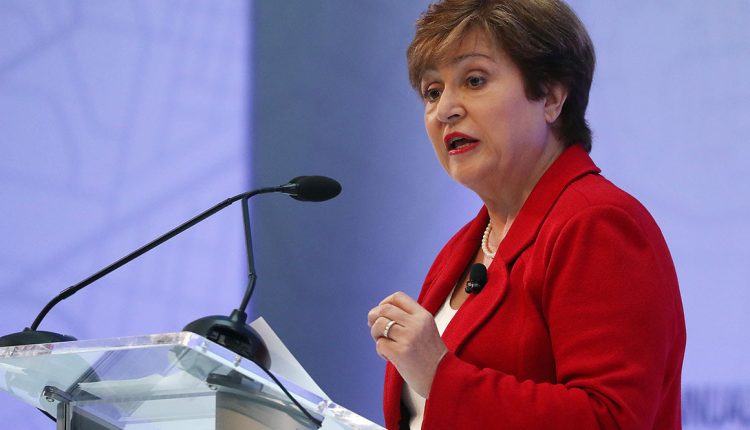Kristalina Georgieva, Managing Director of the International Monetary Fund (IMF), said on Monday growth in the Middle East and North Africa region is expected to rebound to around 3.6 per cent in 2025. The rebound, she said, is supported by a recovery in oil production and easing regional conflicts. However, the IMF official cautioned that medium-term prospects remain weaker than pre-pandemic levels.
Speaking at the Ninth Arab Fiscal Forum in Dubai, Georgieva also said she expects global growth to remain at 3.3 per cent in 2024 and 2025 before slowing to just above 3 per cent over the next five years, falling below historical trends.
Inflation, Interest Rates, and Rising Debt
Georgieva pointed out that inflation has cooled in many economies, though some countries continue to experience rising price pressures. She warned that interest rate divergence and higher borrowing costs could create challenges for emerging markets. She also highlighted concerns over rising public debt, projecting that global debt is on track to reach 100 per cent of GDP by 2030.
In her remarks, she also pointed out that debt levels in several MENA countries already exceed 70 per cent, posing risks of a cycle of low growth and high debt. Georgieva also emphasised the need for governments to balance debt reduction with increasing spending demands, particularly in areas such as job creation, social protection, climate resilience, and economic diversification.
Structural Reforms to Boost Resilience
On structural reforms, the IMF official underscored the importance of strengthening resilience and boosting long-term growth. She stressed that digitalisation, trade diversification, and improved governance will be key drivers of economic transformation. She pointed out that economies with advanced digital sectors experience significantly higher productivity, with AI-led innovation set to expand GDP, particularly in the UAE.
She also noted that Saudi Arabia’s regulatory improvements have attracted private investment, while the UAE and Morocco continue to foster entrepreneurship through targeted policies.
Labour Market and Economic Diversification
Georgieva further emphasised that a stronger private sector will generate more employment opportunities, particularly for women and youth. She highlighted that flexible labour markets, better education, and vocational training have already contributed to employment growth in Oman, Qatar, and Bahrain. She reiterated that economic diversification remains a priority, with oil exporters funnelling investments into emerging sectors such as electric vehicle batteries, green supply chains, and digital industries.
Fiscal Stability and Tax Reforms
On fiscal strategies, Georgieva stressed the importance of maintaining stability through prudent policies that build financial buffers and ensure macroeconomic resilience. She urged governments to implement well-calibrated fiscal adjustments to prevent growth from being stifled. According to her, strengthening domestic tax systems remains a priority, with digitalisation and AI providing tools to modernise tax collection. She noted that expanding tax bases, particularly in emerging sectors, will help generate essential revenue.
Investment Needs and Post-Conflict Recovery
Addressing investment needs, Georgieva highlighted that private domestic and external financing will play a critical role. She pointed out that climate-related disasters alone could require an estimated $1 trillion by 2030, urging the financial sector to take on a larger role. She also stressed the urgent need for post-conflict reconstruction in several MENA countries, including Sudan, Yemen, Gaza, Syria, and Lebanon, noting that these efforts will be vital for regional stability.
Attribution: Amwal Al Ghad English
Subediting: Y.Yasser


